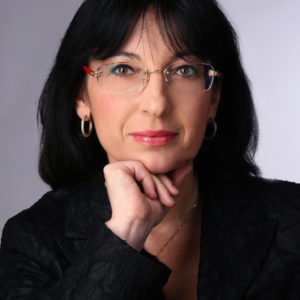An Interview with Dr. Viola Neu
 © iStock
© iStock
Dr. Viola Neu leads the Department of Electoral and Social Research and is Deputy Head of the Division Analysis and Consulting at the Konrad-Adenauer-Stiftung in Berlin. Her expertise is elections and opinion research with her publications spanning a wide range of topics from extremism, inclusion, social media and much more. In an interview we chat about the current moment in politics, the shortcomings of polling and the good news about conspiracy theories.
DWIH: Hi, Dr. Neu! Thanks for taking a moment to chat with us. Let’s get down to it.
Society is currently rapidly changing under digitalization, demographic changes and widening class and cultural divides. Let’s begin by centering this conversation. How do you perceive the present moment? What research questions are most interesting and urgent for you and the Konrad-Adenauer-Stiftung?
Neu: A super election year is approaching in Germany—six state and the federal elections. We have been interested in the changes in the electorate for a long time and try to use new questions to measure the emotional bond between voters and parties. In contrast to the United States, almost all voters can imagine voting for multiple parties. Only a few voters have no alternative voting preference.
The emotional positioning of the parties divides the party system into supporters of the right-wing populist AfD (Alternative for Germany; currently around 10% in the polls) and all other parties. All supporters of a party rate their own party positively. In the population the AfD is associated with the terms fear, indignation, anger and despair, except of course for AfD supporters. We also see this split of the population in attitudes. The supporters of the right-wing populist AfD (currently around 10%) differ in all measurable dimensions from the attitudes of the other voters. Also we are planning a survey on political extremism at the end of the year.
DWIH: Thinking of political extremism in Germany and the U.S., the question arises: Why are we becoming more polarized?
Neu: The question of social cohesion is also raised in Germany. The fear of increasing polarization is also growing in Germany. At the same time, many people, politicians, observers and analysts see growing aggressive communication, especially in social media, which impairs consensus building. Germany experienced that words become deeds in 2019 when a right-wing extremist shot and killed a German politician (the right-wing extremist was convicted of murder). We are currently intensively investigating the question of social cohesion in a study. Unfortunately, no results are available at the moment. Maybe we can talk about it later. In contrast to the USA, the polarization of society is still an open question.

"Polling is not predicting. Like every forecast, uncertainty is included. Who wants to see the future, I always advise, should use a crystal ball."Dr. Viola Neu
DWIH: We’ll keep tracking your findings there!
Since we’re talking to an opinion expert, we have to ask: Political polling didn’t accurately predict the outcomes of the 2016 or 2020 elections in the U.S., causing some folks to distrust the methods. What can you tell us about the conversations going right now on about the future of the field?
Neu: Polling is not predicting. Like every forecast, uncertainty is included. Who wants to see the future (I always advise) should use a crystal ball. Surveys do not measure behavior, but behavioral intentions, and neither immediately before nor after the act of behavior of voting. And behavioral intentions change. Fluctuations arise not only in the voting intention for a party, but also in the question of whether one will vote at all or stay at home.
However, the framework conditions for surveys have also changed. The cost pressure is immense, and more and more surveys are switching to methods whose representativeness is questionable. Good data quality can only be achieved with a very good and reliable survey design. But time and cost pressures had a negative impact on the surveys.
DWIH: Let’s shift gears to what’s on a lot of peoples’ minds. In recent months, you’ve collected some opinion data on the COVID crisis and its handling. What have you found?
Neu: From March 30, 2020 to July 4, 2020, the Konrad-Adenauer-Stiftung analyzed attitudes to the Corona-crisis in real time on a daily basis. In another survey in autumn, we examined the perception of the pandemic again.
Above all, confidence in the government (both state and federal) was extremely high during this time. Nevertheless, there are also critical attitudes: Half of the citizens are of the opinion that many people behave inconsiderately in the pandemic and that too few people take the Corona-crisis seriously. At the same time, the survey shows that the majority of Germans can live well with the effects of the Corona-crisis. Almost three quarters are coping well with the changes caused by the crisis. The time pressure in everyday life has also not changed for the vast majority. Since the Konrad-Adenauer-Stiftung’s last crisis barometer, the citizens’ assessment of the personal long-term effects of the Corona-crisis has shifted. While at the beginning of July, 70% believed that the pandemic would have major or moderate effects on them, only 55% believe this in the fall.
DWIH: A lot of the our discussion here has been about troubling topics. Do you want to share something optimistic or unexpected from your research and findings?
We have been working on conspiracy theories in Germany. We had two representative studies, and we found out that the number of people sharing conspiracy theories has decreased between the beginning of the corona pandemic in spring and fall. We expected a growing number.
We surveyed the extent to which statements about global control by secret powers (i.e. a conspiracy theory) are considered true or false.
In spring 30% of the population believe it is likely right that there is a global control by secret powers. In fall 24% of the population believe conspiracy theories are likely or certainly true. That is still a huge amount, but conspiracy theories became less important.
Older people, people with lower formal qualifications, people with a migration background and supporters of the right-populist party AfD are more likely to believe in conspiracy theories.
DWIH: Some good news after all! Thanks for your time and important work, Dr. Neu. Let’s see how the elections shape out in Germany this year.
For more on Dr. Neu and to see her recent publications, visit the Konrad-Adenauer-Stiftung website.
